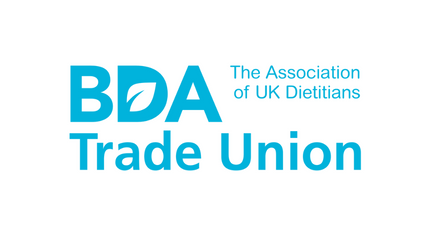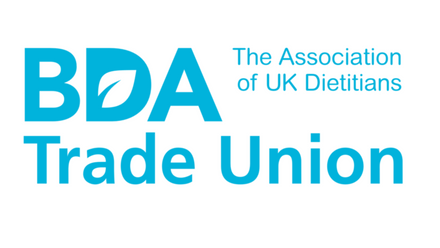Stephen Austin BDA National Employment Relations Officer attended the virtual TUC Adaptation to Climate Change and The World of work Conference on Tuesday 8 September 2020, here he talks about his time at the online event.
The conference was run by the European Trade Union Congress with speakers from various European organisations.
My report on the conference is with a caveat that it was European Union focussed and as of the 31 December 2020 when Britain leaves the European Union what was proposed could become irrelevant to us in the UK.
The event
The conference was chaired by Jacki Davis of Meade Davis Communications.
The first part of the conference was on “Adaptation to Climate Change & the World of Work”.
Key speakers included; Ludovic Voet, Confederal Secretary of the European Trades Union Congress, Blaž Kurnik European Environment Agency, Dave Green Fire Brigade Union, UK and Paul De Raeve European Federation of Nurses
The second part of the conference was on “What recommendations for adaption policies at European and National Level?"
Key speakers included: Elena Visnar Malinovska DG CIMA European Commission, Dortha Jarosinska WHO, Lene Olsen ILO and Par Holmgren ENVI Committee European Parliament.
Climate change and jobs
It was reported that there is going to be a crisis as climate change impacts globally affection all nations and populations. From this it was clear that there will be an impact on workers both in respect of their employment and their health.
The sectors will see changes as some industries go due to climate change and new jobs are created. The health sector specifically will see greater pressure as health issues become more of a crisis across the world.
It was reported that 1.2 million jobs, that’s 40% of jobs are in imminent danger. A 1.5% loss of 80 million full time jobs by 2030.
It would be a challenge and all governments, employers and trade unions along with other stakeholders will have to find strategies and solutions to negate the impact on society and its members who will need both health and financial support to adjust. As well as, for society to achieve sustainable jobs and health care for all.
We heard that Trade Unions are going to be essential in the process to educate members as to the issue of climate change and it impacts but also through collective bargaining with employers to get in place policies to address the impact on the business and on the health and wellbeing of the workforce.
However, it was reported that so far, the government level strategies have tended to disregard the part Trade Unions can play in addressing the Climate Change crisis, but it seems in the European Union this is starting to change. In the UK it seems to be the Trade Unions pushing this agenda, as mentioned by the Fire Brigade Union speaker in the arena of cuts to essential jobs in the public sector, such as fire fighters.
The European Federation of Nurses speaker and the World Health organisation speaker made it clear that Health Care workers are going to be at the front line in the climate change crisis as they drew comparisons to the Coronavirus. People’s health is going to be an issue as temperatures rise globally and already this summer there have been issues with office, health and other workers as the temperatures have been at a record level.
It was also reported that the affects in the UK of the last ten years of austerity, and the likely position that to recover from Coronavirus protections put in place, that austerity measures will have to continue to address the financial effect.
So key to adapting to climate change will be new ways of working. Education of our population on the issues and ways we have to change. Policies and strategies along with legislation to introduce the changes needed. Training of the workers and future workers to be able to work in the current key sectors, but also the new sectors. Stronger Health and Safety and health education and provision.
More discussion, thought and action took place in relation to financial allocation to support the sectors, workers and society as we go through the change. It was reported that in the Slovak countries already some of this is happening. For example, in some countries where there has been drought the answer is to put money into more dams and irrigation. However, The Netherlands for example, the funding is being put into water conservation and replenishment. So, we could see governments having to address waste and push for alternative solutions.
Also, governments need to actually address their industrial effects on climate change and not just offset them to another country.
The World Health Organisation speaker made it clear that the health effects of climate change are a global concern and need to be addressed globally. Health care has to be of the highest quality and available to all across the globe. That is one thing that Coronavirus has shown us.
Going forward
The speakers were asked in conclusion to give one key step they felt important. These were:
- We have to have sustainable policies across Europe and make sure Trade Union rights and Workers Rights are included, and where is investment going to be.
- We need a decent price for job (pay).
- Acceptance that Climate Change is universal and needs a global approach.
- Need clinical dialogue on the issue so we have the Nurses and Health Workers and other services such as Fire Fighters to deal with the Climate Change effects.
- Priority long term economic policies that allow for workers and social dialogue to identify measures needed to adapt to Climate Change. The involvement of Trade Unions and stake holders to address Health and Safety and Health issues.
- Collaboration between government and stake holders. To follow the European union “Climate Action for Jobs Initiative”.
- Integration of Health and Climate Change Policies and clear direction for workers so that health can enter the dialogue.
For me what Eleana Visnar Malinovska from the DG CIMA European Commission said sums the subject up perfectly:
- Have dialogue with the principle of hope
- Talk about it and how it affects you personally
- You do something about it
- Accept that Climate Change is my issue.
I found the conference very interesting, but I am concerned that the UK post Brexit will be out of sync with our European neighbours when it comes to climate change, let alone the rest of the world. As it is clear we cannot address Climate Change alone.
It is my problem; it is our problem and its Mankind’s problem.






